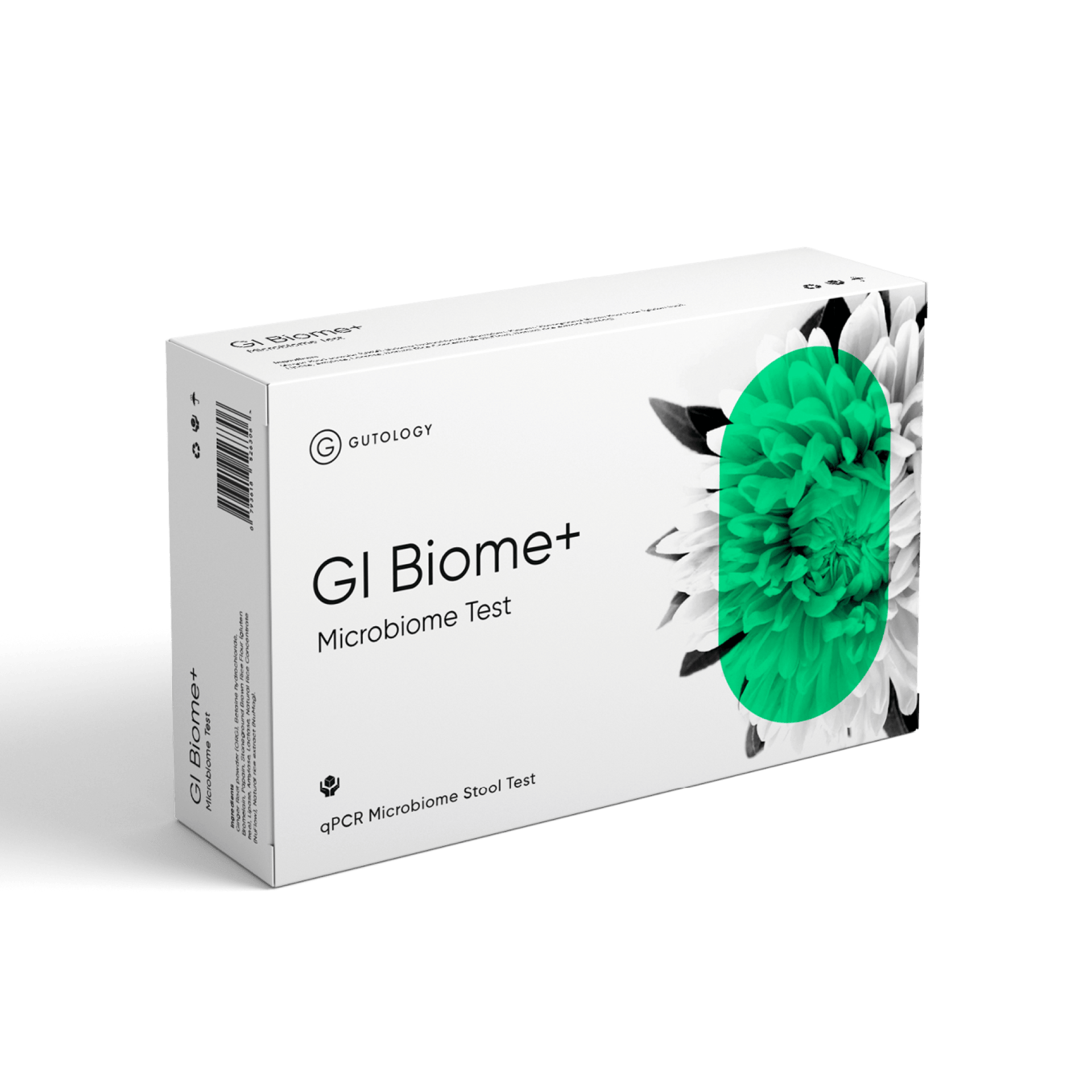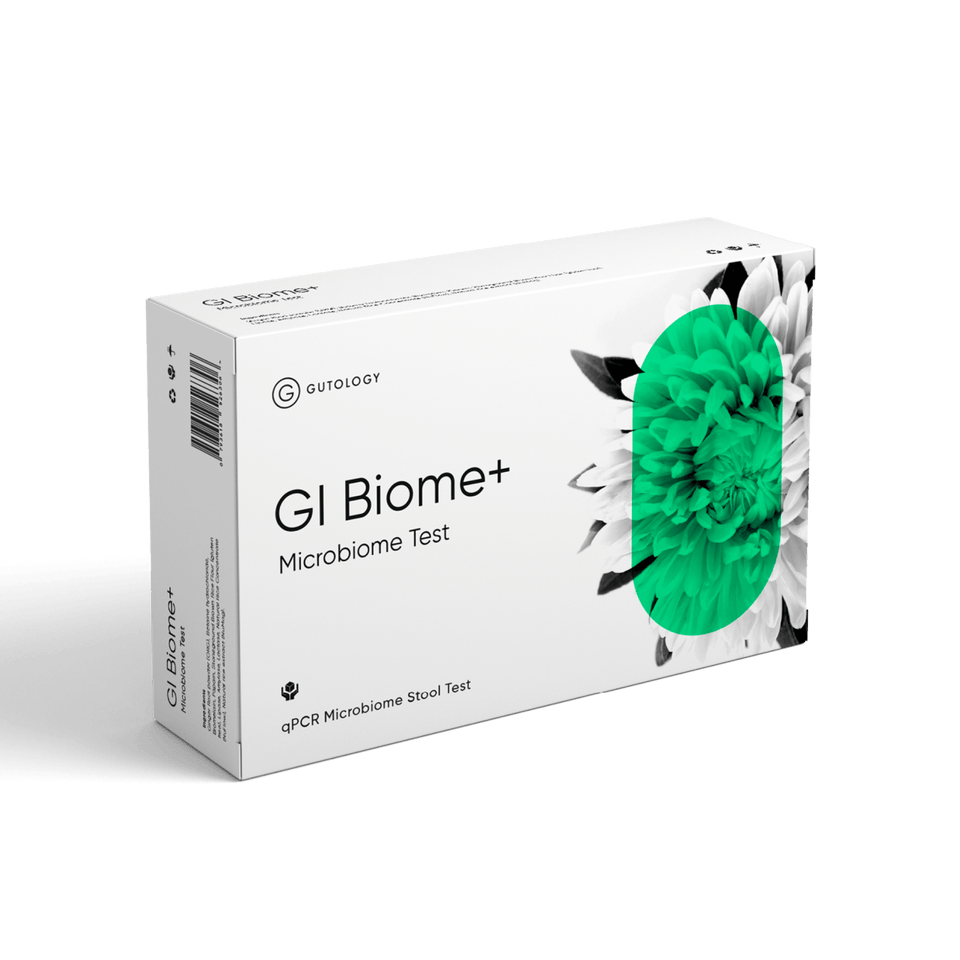Your ‘gut microbiome’ is a catch-all word for the 40 trillion or so microorganisms (mostly bacteria, but also viruses, fungi and yeasts) that live in your intestinal tract. Not forgetting, technically speaking, the genes held in these organisms too.1 These gut bacteria are critical to your health and wellbeing.2
What is the gut microbiome?
Your microbes play a key role in digesting food you eat, help with absorbing nutrients and even make some nutrients.2 Gut microorganisms don’t just get involved with digestion. They also influence many other important processes throughout the body, including your metabolism, body weight, and immune system, as well as your brain functions and mood.2
There are many factors that influence the type and numbers of bacteria you host. These many factors combine to create a personal bacterial profile that is as unique as our fingerprints.2
Where is it?
Micro-organisms live on all the surfaces of our body that are exposed to the outside environment. Contrary to how it feels, our gut is actually considered to be on the outside! Thus, our microbiome extends all the way from the mouth to the anus.3 By far the largest concentration of bacteria live in the large intestine.3 There are trillions living in the large intestine, compared with the small intestine where there are usually relatively few microorganisms.
What is more, different populations exist in different locations. This means that the bacteria in your stomach are different from those in the colon.3 When your gut microorganisms are living in harmony with each other and you, they contribute to your health in many ways, such as:
- Digestion
- Nutrients
- Protection
- Immune function
- Mood and brain function
We rely on gut bacteria to help us digest much of the food we eat, particularly fibrous foods like vegetables.4,5 By fermenting these fibrous foods, our gut bacteria break them down into small molecules that can be both absorbed by and provide energy for the cells lining our gut.4,5
Podcast
Come down the rabbit hole with Julia in Episode 1 of The Gutology Podcast
Nutrients
Many of our gut bacteria can actually produce nutrients like vitamins B3, B6, B7, B12 and K, folate and biotin, some of which we may be able to absorb.6
Protection
A healthy population of gut bacteria will prevent unwanted bacteria from gaining a foothold and so protect us from disease. In addition, certain gut bacteria can influence the internal barrier function of the gut preventing toxins and other unwanted substances from passing through the gut wall into the bloodstream.7
Immune function
By communicating with immune cells, the gut microbiome can influence and therefore affect how we respond to infections.8 Over 70% of our immune system is based in the gut, so the fact that our gut microbes can influence our immune systems is very important and changes in the health of the gut can affect infammation occurring elsewhere in the body.
Mood and brain function
The gut bacteria constantly interact our nervous systems to regulate brain function, affecting our response to stress, and even our memory functions.9,10
What happens when the gut bugs are not in balance?
More and more health conditions are being linked with an imbalance in our microbiome. This might be due to a variety of reasons11including:
- Infection with unwanted micro-organisms
- Having too little variety in our gut bacteria
- Too many of one particular type of micro-organism
- The right kind of bacteria growing in the wrong place
- Not enough beneficial bacteria
- Infection
Preventing infection with unwanted micro-organisms is a constant battle. This happens between our immune system and beneficial gut bacteria on one hand and infective organisms, such as Salmonella, on the other. If the disease-causing organisms gain the upper hand, we may develop clear signs of infection. Or, if their numbers are not quite enough to cause acute ill health, we may have persistent, low-grade symptoms.11
Variety
More than 1,000 different known microbial species can be found in the gut. In any one of us only around 150 to 170 species will be present in large numbers. Having fewer different types of bacteria has been associated with poorer health. In particular with development of allergies, such as asthma and eczema, gastrointestinal problems such as Crohn’s disease, and metabolic problems like heart disease and obesity.11
Too many of one type
Even normal microbial residents of our gut can cause problems if their numbers get too large. An example of this is the Proteobacteria. They seem to be present in increased numbers in cardiovascular diseases, inflammatory bowel disease, asthma and chronic obstructive pulmonary disease.12
Right type, wrong place
Our small intestine and stomach usually play host to relatively few microorganisms. The vast majority of gut bugs live in the large intestine. If conditions are right for them, these large intestine residents can decide to move into the small intestine (a condition termed small intestinal bacterial overgrowth or SIBO). There they can then cause a wide range of symptoms, including gas, bloating, reflux, constipation, diarrhoea, cramps, skin rashes, acne, muscle and joint pain, brain fog and mood changes to name a few.13
And if it wasn’t stressful enough being stressed…
Finally, there is increasing evidence that when we are extremely stressed even the friendly bacteria may stop being friendly and turn against us.14 If life is stressful at the moment, take a look at Ollie’s Top 5 Wellbeing Apps.
Summary
Your ‘gut microbiome’ is a description of the 40 trillion or so microorganisms that live in your intestinal tract, stretching from your mouth to anus. It provides a variety of key functions, including:
- Digestion
- Nutrients
- Protection
- Immune function
- Mood and brain function
As could be expected from providing so many functions, when the microbiome isn’t optimised it has a knock on detrimental effect on our health in a variety of ways.
- Sender R, Fuchs S, Milo R. Revised Estimates for the Number of Human and Bacteria Cells in the Body. PLoS Biol. 2016;14(8):e1002533. doi:10.1371/journal.pbio.1002533
- Ishiguro E, Haskey N, Campbell K. Gut Microbiota. Elsevier; 2018. doi:10.1016/C2016-0-00072-4
- Hillman ET, Lu H, Yao T, Nakatsu CH. Microbial Ecology along the Gastrointestinal Tract. Microbes Environ. 2017;32(4):300-313. doi:10.1264/jsme2.ME17017
- Collins S, Reid G. Distant Site Effects of Ingested Prebiotics. Nutrients. 2016;8(9). doi:10.3390/nu8090523
- Canani RB, Costanzo M Di, Leone L, Pedata M, Meli R, Calignano A. Potential beneficial effects of butyrate in intestinal and extraintestinal diseases. World J Gastroenterol. 2011;17(12):1519-1528. doi:10.3748/wjg.v17.i12. 1519
- Magnúsdóttir S, Ravcheev D, de Crécy-Lagard V, Thiele I. Systematic genome assessment of B-vitamin biosynthesis suggests co-operation among gut microbes. Front Genet. 2015;6:148. doi:10.3389/fgene.2015.00148
- Pickard JM, Zeng MY, Caruso R, Núñez G. Gut Microbiota: Role in Pathogen Colonization, Immune Responses and Inflammatory Disease. Immunol Rev. 2017;279(1):70. doi:10.1111/IMR.12567
- Takiishi T, Fenero CIM, Câmara NOS. Intestinal barrier and gut microbiota: Shaping our immune responses throughout life. Tissue Barriers. 2017;5(4):e1373208. doi:10.1080/21688370.2017.1373208
- Bruce-Keller AJ, Salbaum JM, Berthoud H-R. Harnessing Gut Microbes for Mental Health: Getting From Here to There. Biol Psychiatry. 2018;83(3):214-223. doi:10.1016/j.biopsych.2017.08.014
- Clapp M, Aurora N, Herrera L, Bhatia M, Wilen E, Wakefield S. Gut microbiota’s effect on mental health: The gut-brain axis. Clin Pract. 2017;7(4):987. doi:10.4081/cp.2017.987
- Petersen C, Round JL. Defining dysbiosis and its influence on host immunity and disease. Cell Microbiol. 2014;16(7):1024-1033. doi:10.1111/cmi.12308
- Rizzatti G, Lopetuso LR, Gibiino G, Binda C, Gasbarrini A. Proteobacteria: A Common Factor in Human Diseases. Biomed Res Int. 2017;2017:1-7. doi:10.1155/2017/9351507
- Lappinga PJ, Abraham SC, Murray JA, Vetter EA, Patel R, Wu T-T. Small intestinal bacterial overgrowth: histopathologic features and clinical correlates in an underrecognized entity. Arch Pathol Lab Med. 2010;134(2):264-270. doi:10.1043/1543-2165-134.2.264
- Konturek PC, Brzozowski T, Konturek S. Stress and the gut : Pathophysiology, clinical consequences. Am J Physiol. 2011;62(6):591-599.



